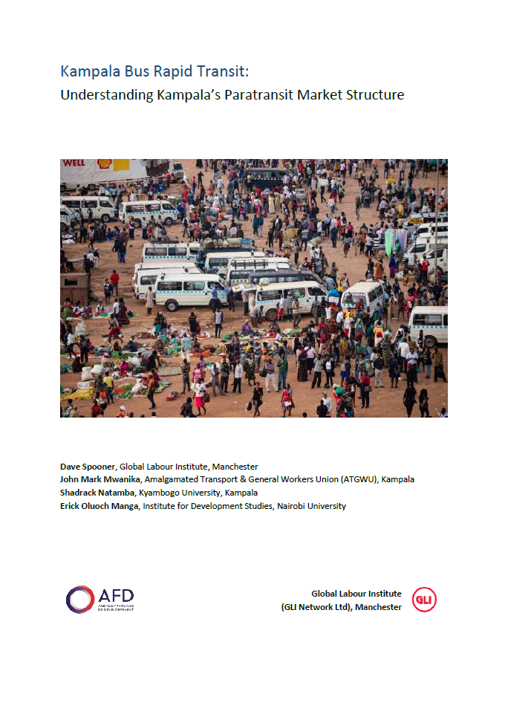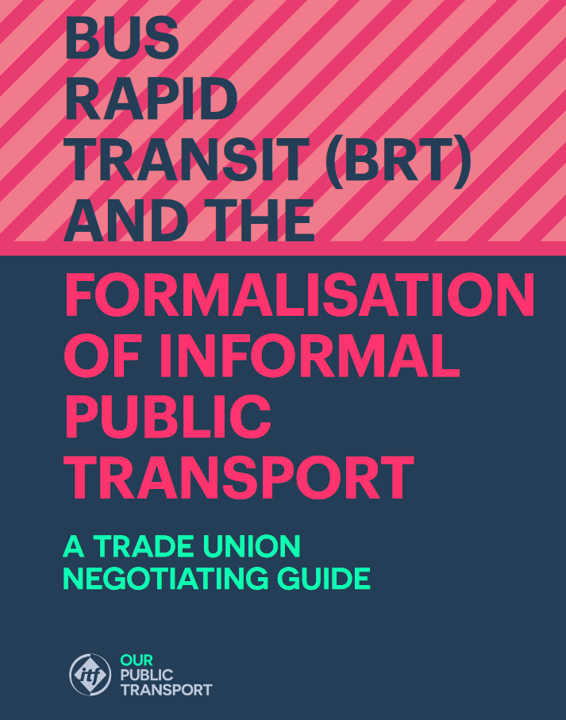GLI offers trade unions and support organisations specialist expertise and experience in research and publications, working closely with national and international research networks of supportive academics, and trade union research institutions. GLI also undertakes independent evaluations of projects and programmes supporting workers’ organisations, labour education and trade union capacity development.
In particular, GLI specialises in
Organising Precarious and Informal Workers
Research focuses on understanding and analysing informal and precarious employment, workers’ livelihoods, and the development of informal workers’ organisations. Recent examples include research and publications on home-based workers, construction workers, and informal transport workers.
Gender and Equalities
Research and education focuses on developing tools to address gender inequality, ensure that the voices and concerns of women are better represented and supporting the development of women’s programmes within the trade union movement.
Transnational Corporate Strategy
Sector and company profiles, specialising in the analysis of international trends and strategies in support of international collective bargaining, organising and leverage campaigns. Each ‘Organising in the Global Workplace’ course delivered by GLI is carefully prepared with research on the companies and sectors involved.
International Trade Union Strategy & Policy
Policy debates, strategies and histories of the international movement. The GLI International Summer Schools, along with GLI presentations and discussions at seminars and summer schools of national unions and international federations, are guided by continuous research on the political and industrial strategies of international trade unionism.
Our publications include research understanding and analysing informal and precarious employment, workers’ livelihoods, and the development of informal workers’ organisations.
Crossing the Divide: Informal Workers and Trade Unions Building Power (2021)
A paper produced for the for the Friedrich-Ebert-Stiftung (FES) as a follow-up to the Trade Unions in Transformation project of the FES Global Trade Union Programme. The paper reflects experiences and policies from examples of organisations across the spectrum of those with an interest in relationships between informal worker organisations and the trade union movement.
The paper is available to read in English and in French.
Informal Passenger Transport Beyond COVID-19: A Trade Union Guide to Worker-Led Formalisation (2020)
A guide for trade unions and associations of informal transport workers on the impact of the pandemic on informal passenger transport workers, the response of transport authorities and the urgent need for reform towards inclusive formalisation.
The guide was commissioned by the ITF and can be found here.
Dakar Bus Rapid Transit: Labour Impact Assessment (2020)
An assessment of the potential impact of the introduction of Bus Rapid Transit (BRT) on the workforce of Dakar’s informal transport industry and a contribution towards the active engagement of transport workers’ representatives in shaping a modern, accessible, efficient and environmentally sustainable transport system for the city.
The project was commissioned by the ITF and undertaken in partnership with the Laboratoire de Géographie Humaine at the University of Dakar (UCAD), and Women in Informal Employment: Globalizing & Organizing (WIEGO).
The report is also available in French here.
Kampala Bus Rapid Transit Report: Understanding Kampala’s Paratransit Market Structure (2020)
The research and subsequent report were undertaken through a contract with Agence Française de Développement (AFD) to support the Government of Uganda and the Kampala Capital City Authority in preparation of the planned introduction of Bus Rapid Transit (BRT) in Kampala.
This report attempts to provide a detailed assessment of the market struture of the paratransit industry in Kampala, including both minibus (“taxi”) and motorcycle taxi (“boda-boda”) services. It is intended to contribute towards an understanding of how paratransit services can be incrementally improved and professionalised to minimize some of its negative effects on Kampala’s overall transport system, and how to integrate the existing informal service into the proposed new Bus Rapid Transit (BRT) system.
Bus Rapid Transit (BRT) and the Formalisation of Informal Public Transport – A Trade Union Negotiating Guide (2020)
This negotating guide was commissioned for GLI Manchester by the International Transport Workers Federation (ITF) as a contribution to the ITF Our Public Transport (OPT) programme.
This guide attempts to develop policy options for transport unions to consider when planning negotiations with agencies on the introduction of BRT and formalisation of the informal transport industry. It is primarily designed for ITF affiliated transport unions in Africa and Asia where BRT is rapidly expanding, but is hopefully of value to all trade unions organising in urban transport.
Nairobi Bus Rapid Transit Labour Impact Assessment Research Report (2019)
This full report of research was commissioned for GLI Manchester by the International Transport Workers Federation (ITF) as a contribution to the ITF Our Public Transport (OPT) programme.
This report assesses the potential impact of the introduction of Bus Rapid Transit on the workforce of Nairobi’s informal transport (‘matatu’) industry, and seeks to encourage the active engagement of matatu workers’ representatives in shaping a modern, accessible, efficient and environmentally sustainable transport system for the city.
Nairobi Bus Rapid Transit Labour Impact Assessment (2018)
The GLI was commissioned by the International Transport Workers Federation (ITF) to undertake preliminary research and write a baseline study report to assess the likely impact and implications of Bus Rapid Transit for workers in Nairobi.
Independent Evaluation: ILO’s Capacity Development Activities, 2010-2017 (2018)
Using mix methods for collecting data and information, this evaluation reviewed the ILO’s interventions with the intention of delivering capacity development in its constitutents covering the period 2010-2017.
Transforming Transport Unions through the Mass Organisation of Informal Workers (2016-2017)
A Case Study of the Amalgamated Transport & General Workers Union (ATGWU) in Uganda which pioneered the successful organisation of more than 100,000 informal transport workers through the formation of alliances with informal workers’ associations. The project was commissioned by the Friedrich Ebert Stiftung as a contribution to its Trade Unions in Transformation project and undertaken by GLI in partnership with ATGWU.
FILM: The Power of Informal Transport Workers
In 2016 GLI Manchester released our new short film, “The Power of Informal Transport Workers” This film shows how informal transport workers across the world are organising in trade unions to fight back against precarious and dangerous working conditions.
Produced as part of the ITF Informal Transport Workers Project, the film brings together interviews with union activists from seven different countries who talk about the challenges that informal workers face and the ways in which their unions are building informal worker power.
ILO: Strengthening International Labour Standards In Global Supply Chains and Export Processing Zones SCs & EPZs (2016)
The evaluation examined the efficiency, effectiveness, relevance, impact and sustainability of two projects focused on building strong, independent and representative organisations.
ILO: Strengthening of Workers’ Organisations in the Arab Countries through Economic, Social and Legal Literacy (2015)
This evaluation examined the efficiency, effectiveness, relevance, impact and sustainability of a project focused on developing the capacity of workers’ organizations in the Arab region.
Organising Precarious Transport Workers (2013)
This precarious transport workers booklet was prepared for the International Transportworkers’ Federation based on quotes and examples from the ITF’s survey on Informal and precarious work.
ITF Informal Transport Workers’ Project (2013-2016)
Design and management of research and education in Africa, Asia and Latin America to support the democratic organisation and representation of informal transport workers.
The project was a partnership with ITF and FNV Mondiaal, the international development organisation of the Dutch FNV trade union confederation.
ITF Baseline Survey Report: Precarious Labour and Decent Work in the Transport Industry (2013)
This research and publication was comissioned by the International Transportworkers’ Federation. Its goal was to improve knowledge of the extent, nature and trends in precarious and informal employment in the major transport sectors, and to identify the experience of union organisation, representation and collective bargaining among precarious and informal workers. This report brings together findings from 51 unions in 38 countries.
The Only School We Have: Learning From Organizing Experiences Across the Informal Economy (2012)
Compiled and edited by Christine Bonner and Dave Spooner, published by Women in Informal Employment: Globalizing and Organizing (WIEGO).
Promoting the ILO Home Work Convention (C177) and the Rights of Homeworkers (2012)
This manual was produced by the Global Labour Institute for HomeNet South Asia. It is a manual for workers’ educators and faciliators to provoke and encourage discussion about homeworkers and their rights as workers and encourage homeworkers and their supporters to get the ILO Home Work Convention put into national law in their own country.
Transport Workers in the Urban Informal Economy: Livelihood Profile (2011)
This research was was commissioned by the Bill and Melinda Gates Foundation to profile the size and significance of those working in the urban informal transport sector in developing and transition countries, and to make suggestions on what can be done to improve the life-chances and livelihoods of urban workers in the informal transport economy.
Taking Stock: Decent Work Opportunities for Women and Men in the Informal Economy (2011)
Report of workshop on Organising Street Vendors in Liberia, held in Monrovia in May 2011. This workshop was organised and faciliated by Women In Informal Employment: Globalizing and Organizing (WIEGO) with two closely related aims:
- to strengthen the organising capacity of the National Petty Union of Liberia (NAPETUL)
- to explore the potential for a longer-term partnership between NAPETUL, the Liberian Labour Congress (LLC), Ghana TUC and StreetNet International.
This research and training was commissioned by Realizing Rights/Rockefeller Foundation as part of the project Taking Stock: Decent Work Opportunities for Women and Men in the Informal Economy.












